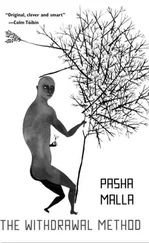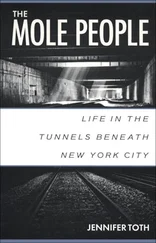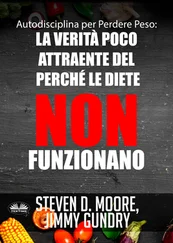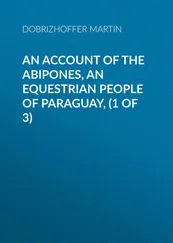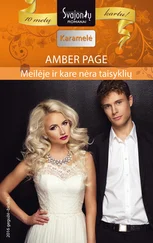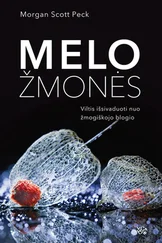Kellogg gazed down the bridge. Along the island’s shore was more gridlock, a call-and-response of horns, long blasts echoed by long blasts, all of it useless, nothing moving.
Mr. Poole, we’re going to need you to get processed once you’re islandside. Your wife is fine — Bean stamped her permit forcefully, handed the others over — but the rest of you need special permission before you can join the Jubilee celebrations.
But! No, we can’t do that — my son, he’s. . We’ll miss Raven’s arrival!
Bean checked his watch. Not much chance of you making that anyway. NFLM on Topside Drive are expecting you, they’ll direct you to Residents’ Control — that’s the Galleria foodcourt, five minutes from the bridge. Good lookin out!
Thanks, said Kellogg, and headed back to the minivan wondering what he’d thanked him for.
Elsie-Anne raced ahead to the bridge’s railing, hopped up, leaned over. And went rigid. Dad, she called, pointing below. Look.
A naked woman was walking — precariously, slowly — out onto one of the iron trestles that extended from the structure’s underside. Two hundred feet below lay the river, a ruffle of black silk spangled silver, and as the woman stepped, one foot then the next, the wind tousled her hair like the hand of some benignly drunk uncle. Pigeons burbled somewhere, but Kellogg couldn’t see any pigeons.
The woman seemed oblivious to everything: to the traffic, to Bean and his flares, to Kellogg and Elsie-Anne, to the world and all that was in it. Her back was hunched, her buttocks alabaster. At the end of the trestle she stopped, arms extended for balance. If she were to jump it seemed she would be leaping not down, but outward, into open space.
Oh my god, said Kellogg. Elsie-Anne, get in the car.
Dad?
Kellogg snatched her by the chin. You listen, if that person jumps and we’re the only witnesses, it will ruin our vacation. You won’t get to swim, Gip won’t get to see his magician — we’ll be at the morgue, answering questions. They might even blame us! So forget you saw anything. Get in the car. Say nothing to your mother. Hear me? Nothing.
Elsie-Anne nodded.
Good girl, said Kellogg, knuckled her cheek, slid open Harry’s door, ushered her inside, slammed it closed — and looked over the railing. The woman hadn’t moved: a porcelain, otherworldly figure who seemed to float in the brisk morning air.
Kellogg opened his mouth to call to her, to tell her — what? But it was too late: a great tumble of hair, and the trestle was empty.
Trembling, Kellogg rushed to catch the body’s splash or see it swept away in the current. But Bean was calling him: Sir, sir, in your car, please, sir. So Kellogg stopped, apologized, returned to the minivan. In the backseat Pearl, sniffling, stroked Gip’s hair. Elsie-Anne stared vacantly into her purse. Okay, said Kellogg, moving his foot from brake to gas. The engine vroomed, he pressed harder, Harry went nowhere.
You’re in Park, said Pearl.
Oh, said Kellogg, shifted to Drive, and lurched another ten feet closer to the island.
 Y TEN-THIRTY it was all over. Raven stepped into his trunk, waved a brochure from the Grand Saloon, said, I believe this is where I’m staying, and closed the lid on himself. A moment later the helicopter seemed to come alive of its own accord, lifted up from the common, looped over Crocker Pond, and landed atop the hotel. The doors to the penthouse suite opened and Raven stepped onto the balcony, blew six kisses at the crowd, bowed, and ducked away.
Y TEN-THIRTY it was all over. Raven stepped into his trunk, waved a brochure from the Grand Saloon, said, I believe this is where I’m staying, and closed the lid on himself. A moment later the helicopter seemed to come alive of its own accord, lifted up from the common, looped over Crocker Pond, and landed atop the hotel. The doors to the penthouse suite opened and Raven stepped onto the balcony, blew six kisses at the crowd, bowed, and ducked away.
The trunk sat innocuously in the middle of the stage.
There was nothing else to look at.
And so with a collective sigh people began to shuffle back to their lives.
From the top of the northern hillock the protestors withdrew, trashed their placards out back of Street’s Milk & Things. Today Debbie, Pop and the two Island Institute students whose names Debbie kept failing to learn were joined by the most militant members of the Lakeview Homes Restribution Movement: a man called Tragedy — walleyed, squat, and gnomish, smelling of salsa — and his lean, lisping, wispily bearded friend, Havoc. They’d shown up to their first meeting only two weeks prior and pulsed with something weird and feral that might euphemistically be described as energy.
Debbie watched the crowd thin and scatter, far below. You wonder if anyone even knows we’re here, she said.
The one who hit me with a snowball did.
Here were the students, clasping hands.
That sucked, said Debbie. People just don’t think sometimes. You okay?
The girl nodded shyly, the boy shook his head. A patchwork of cause-oriented pins covered her knapsack. Over his woolly jumper hung a pendant in the shape of a fist.
Down the path to the common Tragedy was trying to tear a Silver Jubilee banner from a lamppost. He was too short though, and couldn’t get decent purchase: he jumped, clutched, flailed, swore, sulked. Havoc lisped, Let it go, man, it’θ only a θymbol. Be real.
Meanwhile Pop was heaving himself up the steps of his houseboat, which presided on the lip of the clearing over People Park. He was in his sixties, and large, flabby even, somehow yellowing, every breath was a gasp.
The houseboat was a boxcar on blocks, scabbed with rust and flaking paint. Maybe she’d help fix it up sometime, often thought Debbie, and felt guilty now having only ever thought this thought. Pop unfolded a lawnchair and plopped into it. One minute, he said, wheezing. Yet in his eyes, as always, was that manic glimmer. When three years prior Debbie had come to interview him for In the Know he’d stormed out of Street’s Milk & Things ranting about restribution , every few sentences screaming, Get this word for words, reporter! After a four-minute diatribe he’d announced, I have to work, and disappeared into the store. Debbie, assigned to write about Mr. Ademus’s mysterious and hugely popular sculptures — the Things he sold, the Things of Milk & Things — had written nothing.
Lark, called Pop from his lawnchair, arms raised, poncho spread (RESTRIBUTION! markered across the chest). Gather!
Debbie pushed close with her notebook and beamed at him with what she hoped passed for reverence.
In the baritone of a preacher Pop began: Thank you all for attendenating here with me today. The city’s going to hear us! — Tragedy responded, Fug yeah! — We may be small, but we’re big. This Mayor, this NFLM, this Jubilee , they envision our spirits as flattened as they flattened Lakeview Homes? That a quartered century hencefrom we’ve forgotten this so-and-so-called park was once impersonated by people ? Say it with me: No!
No fuggin way, said Tragedy.
Feverishly, Debbie took notes.
No! Not this time. Not any time. Not this time!
Shame, warbled one of the students — the girl. Shame, echoed her boyfriend.
Shame! Pop pointed at them, eyes narrowed. You’ve said the magical word. It is a shame. What transposed here, a quartered century hencefrom — a bloodied shame.
Bloody fuggin cogθuggerθ! screamed Havoc.
And they think they can just erect a memorial to make it okay-dokay? A statue ?! Well I’ve got a statue of limitations for that sort of thing!
Pop’s eyes gleamed.
The memorial unveiling’s tomorrow, added Debbie. Hope everyone can come?
Pop saluted, hoisted himself to his feet, howled, Restribution! and waddled off, puffing, to open Street’s Milk & Things for the day.
A pigeon wheeled overhead, perched on the roof of the houseboat, eyed the gathering, scratched itself under a wing with its beak. Tragedy threw a rock, which went sailing into the bushes. The bird shat a greenish dribble onto the roof and glared defiantly back.
Читать дальше
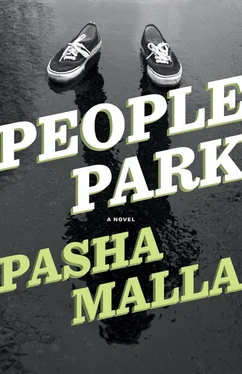
 Y TEN-THIRTY it was all over. Raven stepped into his trunk, waved a brochure from the Grand Saloon, said, I believe this is where I’m staying, and closed the lid on himself. A moment later the helicopter seemed to come alive of its own accord, lifted up from the common, looped over Crocker Pond, and landed atop the hotel. The doors to the penthouse suite opened and Raven stepped onto the balcony, blew six kisses at the crowd, bowed, and ducked away.
Y TEN-THIRTY it was all over. Raven stepped into his trunk, waved a brochure from the Grand Saloon, said, I believe this is where I’m staying, and closed the lid on himself. A moment later the helicopter seemed to come alive of its own accord, lifted up from the common, looped over Crocker Pond, and landed atop the hotel. The doors to the penthouse suite opened and Raven stepped onto the balcony, blew six kisses at the crowd, bowed, and ducked away.